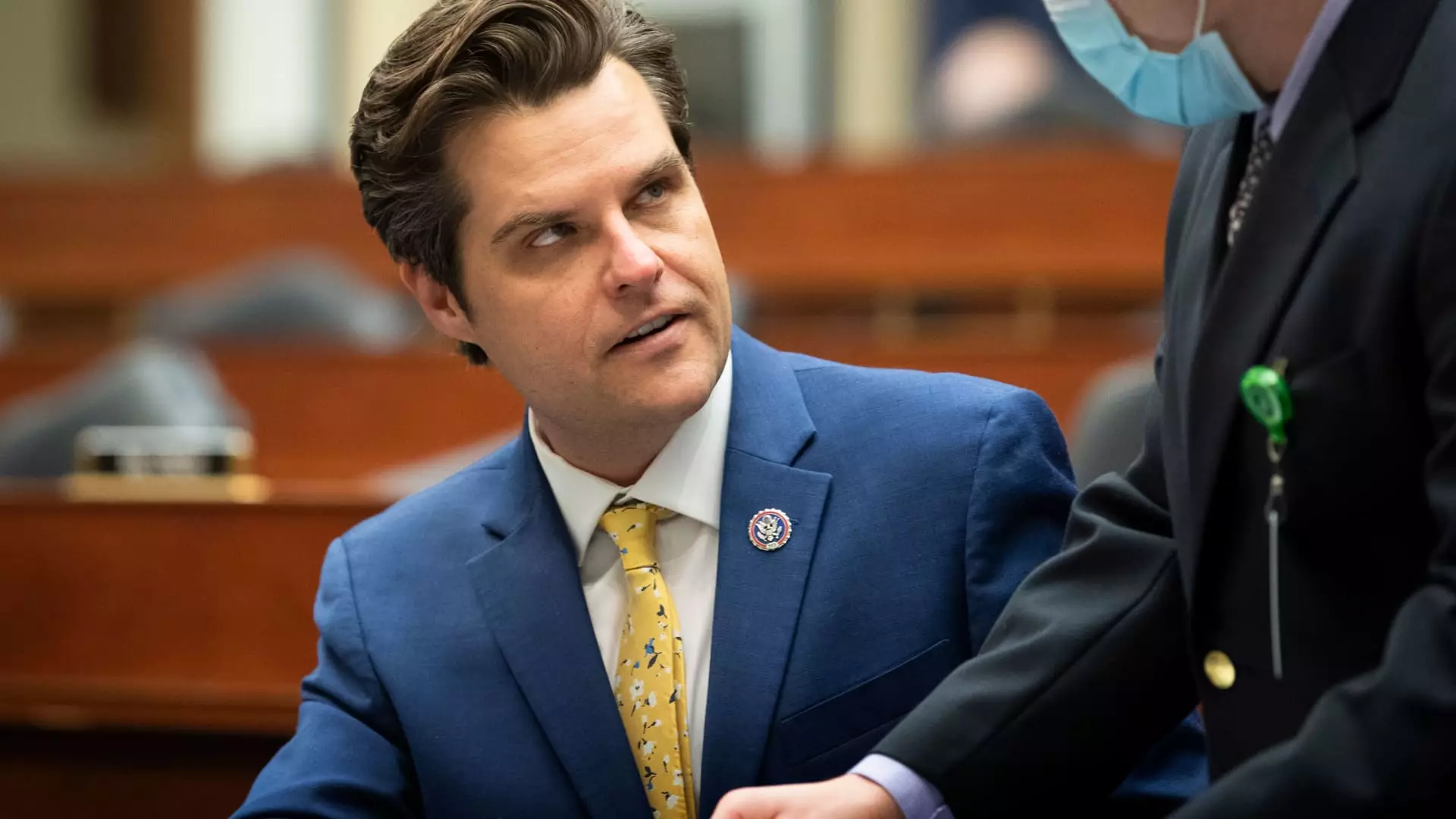The recent buzz surrounding former Representative Matt Gaetz embodies a complex narrative steeped in allegations of sexual misconduct and drug misuse, drawing the attention of both media and the public. This scrutiny intensified following a secret vote by the House Ethics Committee that opted to release a report concerning the investigations into Gaetz’s conduct. The decision is noteworthy, not only due to the serious allegations but also because of its implications in the bipartisan landscape of the ethics committee’s operations.
The Vote: A Shift in House Ethics Committee Dynamics
The recent unanimous decision by the House Ethics Committee signifies a pivotal moment in an ongoing saga that began with Gaetz’s tenure in office. Previously, the committee had been mired in indecision, deadlocking over the report’s release in November. This stalemate arose after Gaetz resigned from Congress following the announcement that he would be appointed as U.S. attorney general under President-elect Donald Trump—a move that soon unraveled amid a swirl of scandalous claims against him. The subsequent pressure elicited from both sides of the political aisle, especially as the holiday recess approached, seemingly propelled the committee towards action, culminating in this reported vote.
Gaetz, a controversial figure known for his overt political bravado and unrepentant demeanor, reacted vehemently against the Ethics Committee’s decision. His dismissive references to the allegations—characterizing them as politically motivated attacks—echo a pattern where individuals mired in scandal resort to counter-narratives that vilify institutional investigation processes. Gaetz’s claims of being “fully exonerated” underscore a typical refrain by embattled politicians who engage in a narrative of integrity despite evidence suggesting negligence or wrongdoing.
The allegations leveled against Gaetz are severe. They cover a broad spectrum: accusations of sexual misconduct, illicit drug use, and providing personal favors in exchange for illicit benefits. These charges were not only underscored by public statements but were also substantiated by investigative efforts led by the Department of Justice, which, however, concluded its probe without filing any criminal charges. Nevertheless, the reopening of the House Ethics Committee’s investigation reflects the enduring shadow of suspicion that looms over Gaetz’s political legacy.
The breadth of the current inquiry delves into whether Gaetz misused his position through unethical practices. Of particular interest are the assertions that he sought to obstruct governmental probes concerning his conduct. Such actions, if proven, could illustrate a staggering abuse of congressional privilege, raising questions about accountability within the political system. The lingering uncertainty surrounding these allegations reinforces a broader narrative about ethical governance that resonates through Washington.
In a defiant social media post, Gaetz vehemently rejected the accusations against him, asserting that the absence of any legal charges serves as proof of his innocence. Through a combination of bravado and defensive rhetoric, he attempted to reclaim the narrative, insisting that the allegations were exaggerated products of a biased political environment. Yet, while he categorically denies any inappropriate conduct involving minors, his admissions regarding past behavior evoke a troubling image of excess, suggesting personal accountability is not just a matter of legal consequence but also one of moral reckoning.
The implications of this saga extend far beyond Gaetz’s individual circumstances; they force a broader reflection on the culture of transparency and accountability within Congress. The Ethics Committee’s decision to release the report, despite arguments against doing so for former members, raises significant questions about the standards of conduct expected from elected officials. On one hand, releasing the findings promotes transparency; on the other, it risks politicizing the investigative process.
The unfolding story of Matt Gaetz encapsulates a broader conversation about ethics in American politics. As the House Ethics Committee prepares for the potential unveiling of its report, the call for a more accountable governance system echoes louder than ever. For Gaetz, this chapter serves as a sobering reminder of the precarious balance between political ambition and accountability, one that will undoubtedly shape his future and the standards upheld by those in power.
Even as the political landscape evolves, the need for rigorous ethical oversight remains paramount. It is a cause for reflection on the responsibilities borne by elected officials—not just to their constituents but to the trust and integrity that underpin the very fabric of democracy. The Gaetz investigation, regardless of its outcomes, is a testament to the relentless pursuit of truth and the demand for ethical conduct that transcends party lines. As such, this situation should be a clarion call for renewal, accountability, and the self-examination that is so vital to the public trust in governance.

